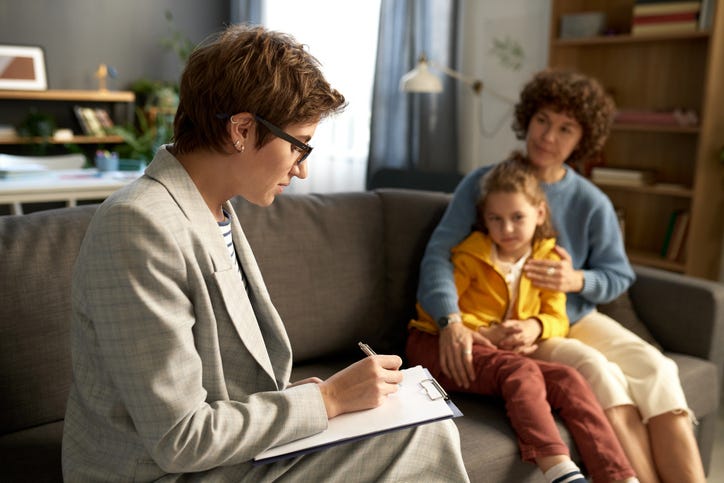
SAN FRANCISCO (KCBS RADIO) - Experiencing significant trauma early in life increases the risk of health problems in adulthood. But a new study out of UC San Francisco shows a type of child-parent therapy can actually slow down that "age acceleration."
It's the first research to show that the treatment, called dyadic therapy, can have a biological impact, according to senior author Dr. Nicole Bush, a psychologist and chief of UCSF's Division of Developmental Medicine.
"It's been really stressful to see all of the data showing that adversity can get under the skin to affect kids' health. And we wanted to find a way to demonstrate that we could reverse some of this harm," Dr. Bush told KCBS Radio's Patti Reising on this week's episode of "As Prescribed."
Previous research has shown that adverse childhood experiences and other trauma early in life can affect our biological health and over time have been associated with asthma, cancer, heart disease and even death.
"The earlier in life those adversities occur, the more powerful they can be in terms of affecting our underlying biology. Sometimes it's referred to as stress getting under the skin," said Dr. Bush. "It's been shown to accelerate aging. So aging is a natural process. However, if you're aging in your body under the skin at a faster rate than your chronological age, it can be quite risky in terms of your overall risk of having disease or early death."
UCSF researchers looked at the effects of dyadic therapy on a biomarker they dubbed "accelerated epigenetic aging," also known as the epigenetic clock, which tells how fast or slow a person's body is aging compared to their chronological age. The study compared two groups of children; one received up to 20 weekly sessions of child-parent psychotherapy while the other did not.
"What we found is that after on average 20 sessions of child-parent psychotherapy, the children who had received the intervention had a much slower biological aging rate than those children who had not received the therapy. And the kids who hadn't received the therapy showed continued aging acceleration over the year," Dr. Bush said, noting that even small biological changes early on can lead to big differences in health outcomes over the life course.
The biggest takeaway is that "there's something we can do to reverse the harm associated with trauma and adversity early in life," Dr. Bush added.
"The psychosocial intervention can offset the biological risk related to trauma in a manner that's likely to prevent a whole range of mental and physical health problems in childhood and later adulthood through a relatively small investment early in life," she said.
Listen to this week's "As Prescribed" to learn more. You can also listen to last week's episode to learn how micromobility is leading to macro trauma as electric scooter and e-bike accidents skyrocket, here.
DOWNLOAD the Audacy App
SIGN UP and follow KCBS Radio
Facebook | Twitter | Instagram
"As Prescribed" is sponsored by UCSF.
